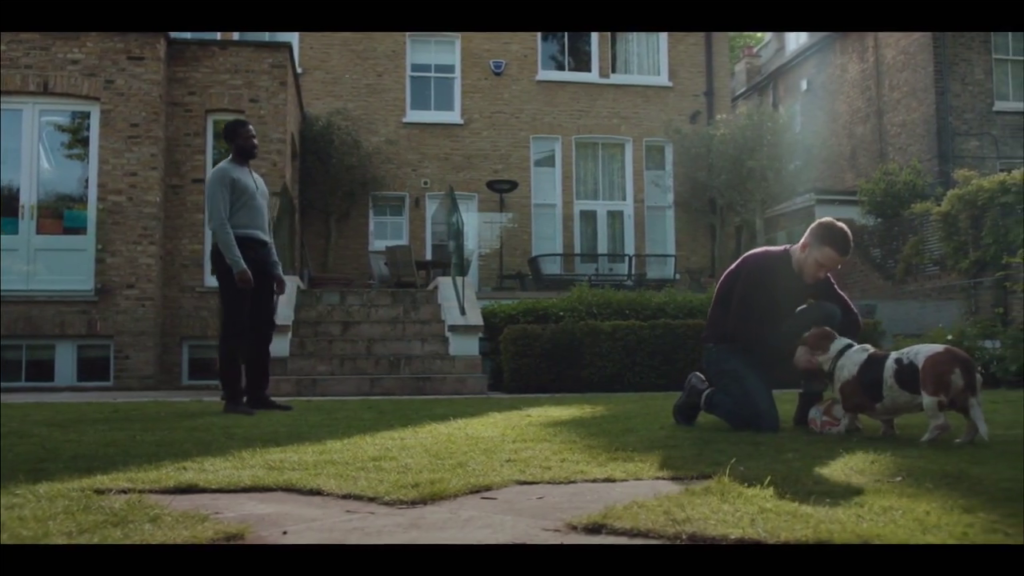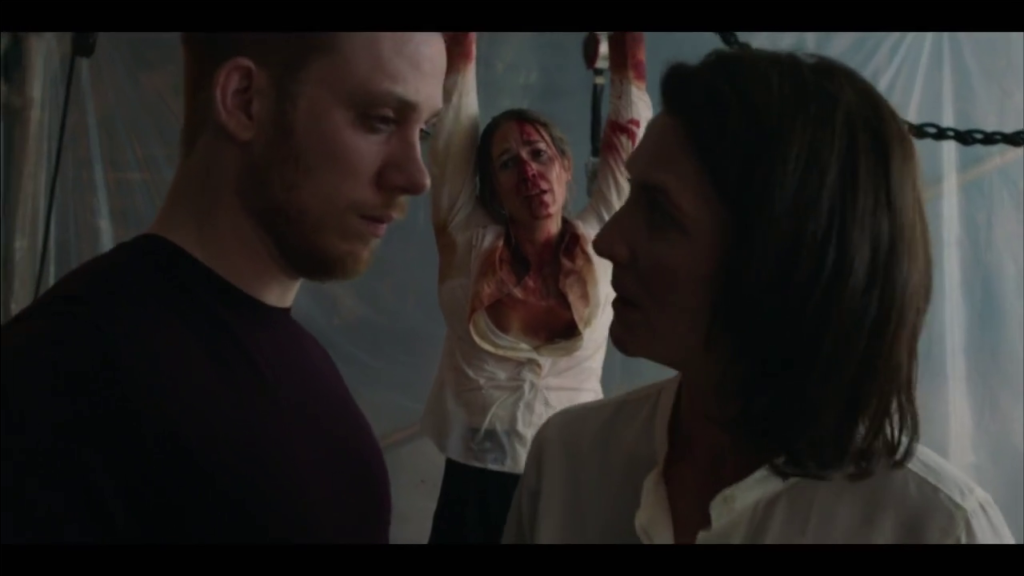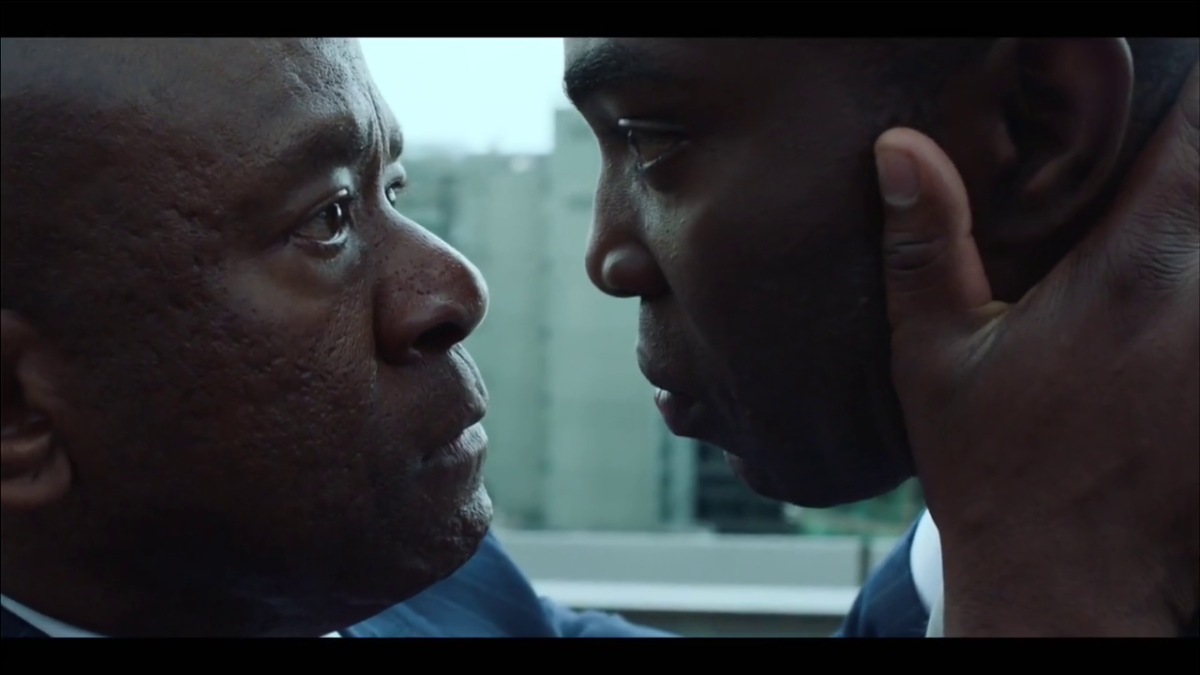Gangs of London
Season 1
Episode 6
The tooth, the whole tooth, and nothing but the tooth
After the apocalyptic farmhouse siege sequence that closed out Gangs of London’s fifth, parenthetical episode, the first question on everyone’s lips was: how the hell can the show possibly top that in the four episodes left in the season?
The answer: it can’t, and doesn’t. In fact, it doesn’t really even try.
In fact, there are exactly zero major action setpieces left to come in Gangs of London, Season 1.
*record scratch*
*tyres squealing*
*glass breaking*
Yeah, I can’t quite believe it either. High-key, stylised action was an integral part of the promise that Gangs of London made to viewers from the very beginning, a core part of the show’s DNA. I remember watching these last four episodes with my Dad back in 2020, expecting the mounting tensions between the characters to be discharged in some kind of large-scale, highly choreographed crescendo, and being disappointed and bewildered when one never arrived.
To this day, four years after the show debuted, I still can’t quite make sense of it. This is pure conjecture, but I do wonder if it might have been a budgeting or scheduling issue. Showrunner Gareth Evans has talked candidly about the fact that he and co-creator Matt Flannery hadn’t worked in television before, and that managing the resources available to them in the context of a TV workflow was a challenge they had to overcome. To hear him tell it in the linked interview, “it worked,” but… did it? Did handling each episode of the show with the same philosophy as a feature film lead to the season being frontloaded, with the first five episodes given all the fun toys to play with?

To wit: Episode 6, which isn’t quite a bottle episode, technically, but which features a marked reduction in scope and scale from everything that came before it. We rejoin the central cast in the wake of the failed assassination attempt at the end of Episode 4, after a one-week time skip. Sean, Billy, and Marian have holed up in a safehouse, their location undisclosed to anyone except Elliot (now well and truly ingratiated with the Wallaces after he caught a bullet meant for Sean). Unbeknownst to Ed and Alex, who thought she was dead, they have Tove downstairs, suspended from the ceiling by her wrists, with her bare feet dangling inches over a carpet of broken glass. Day after day, Tove’s agonised screams echo up the stairs, as Marian methodically works to extract the name of her employer.
[Episode 6] isn’t quite a bottle episode, technically, but [it] features a marked reduction in scope and scale from everything that came before it.
Episode 6 is the first of three consecutive episodes to be directed by Xavier Gens, a French filmmaker and one of the key figures in the “New French Extremity” movement in the late 00’s. Prior to this, he was known for the 2007 Hills Have Eyes riff Frontière(s) (a film I’ve seen half of, and hated what I saw), and the adaptation of the Hitman videogame, also from 2007, starring Timothy Olyphant (terrible as well, though for different reasons). Suffice it to say, I’m not Gens’s biggest fan.
The bulk of Episode 6 is given over to the gauntlet of torture that the Wallaces visit on Tove, in ways that feel very characteristically Gallic. I was reminded, at times, of Pascal Laughier’s Martyrs. The camera is attentive to Laura Sofia Bach’s quivering, terrified performance, making us feel awful for every fingernail and tooth that Marian rips out with a pair of bloody pliers. This is not the violence of action and adventure and derring-do that we saw in the pub fight in Episode 1. It’s not even the kind of torture scene we saw in Episode 4, where Elliot was compelled to prove his bona fides by breaking a man’s leg; even there, the stakes were immediate, focused on the short-term ramifications of whether Elliot could prove his loyalty or not.

Until now, the violence in Gangs of London has been adrenalising; the characters have done unspeakable things to other human bodies, but always presented in a context where it was kill-or-be-killed. The narrative framing has always insulated the characters, and the audience, from the lasting consequences of the brutality being inflicted.
Until now, the violence in Gangs of London has been adrenalising; the characters have done unspeakable things to other human bodies, but always presented in a context where it was kill-or-be-killed.
Episode 6 reverses the show’s priorities; here, in the Wallaces’ safehouse, violence is a miserable, dreary, malingering thing, corrosive to the spirit of both the victim and the perpetrators. It isn’t exciting; purposefully not. Gens frames the atrocities that Marian visits on Tove as a kind of soul-crushing routine. It’s monotonous; even tedious.
The episode has a very insistent, repeated needledrop: the song “Only You (And You Alone),” the 1955 R&B hit recorded by The Platters. Its presence in the episode is diegetic; early on we see Marian cueing up a playlist on the house’s sound system that consists of nothing but “Only You (And You Alone),” over and over again. The implication is that the track is being used as a form of psychological torture; the slow, gentle rhythm and romantic lyrics growing hostile and maddening by their irony and their sheer repetition. The audience is subjected to this low-level torment of repetition together with Tove.
Most of Gangs of London’s ongoing subplots are shunted to the back burner for Episode 6. There’s nothing new with Asif, or his son’s campaign for mayor. There’s no word of Lale, or her operation. (And, frankly, two consecutive episodes of Gangs of London with no Lale are two too many.) Elliot touches base with Vicky in a rendezvous that could’ve been an email. We briefly check in with Luan, with Ed honouring the Wallace organisation’s outstanding debt; he’s got some breathing room from Mosi, for the moment.

But there is one major development; the conversation that Ed has with Alex on a penthouse balcony. Ed knows who killed Finn. It was the nebulous, omnipotent “Investors”; the people Jevan works for; the people whose money the Wallaces have been washing with their construction projects; the people with Leif and Tove on their payroll. They want the steadfast, reliable Dumanis running things, and the volatile, vengeful Wallaces out of the picture, in the same sense that Kinney and Darren were erased.
Ed knows who killed Finn. It was the nebulous, omnipotent “Investors”; the people Jevan works for…
This revelation comes 14 minutes into a 56-minute-long episode (including the “Previously On” segment). Everything that Marian does to Tove in the course of her interrogation is to extract information the audience already knows.
There’s very little action in Episode 6, notwithstanding the hostage situation that ends it. Tove slips her bonds, holds Billy with a shard of glass to his throat, and gets shot to death by Marian.
There’s also very little exposition; as far as what the audience is curious to learn about the ongoing mystery of Finn’s death, that’s solved perfunctorily at the 14-minute mark. The rest of the episode is given over to characterisation of the Wallace family.

Billy, much like in Episode 2, is the heart of the drama. In the upstairs kitchen, he bakes cake after cake, distracting himself from Tove’s screams and the repeating strains of “Only You (And You Alone).” This is an unlaboured detail that I think the episode does very well: the montages of Billy’s baking. It’s common for recovering heroin addicts to develop a sweet tooth. The close-up shots of teaspoons of brown sugar, and Billy idly lighting a flame under them before he tips them into the cake batter; they’re a powerful illustration of how claustrophobic his life has become, and how much he needs release from the ugliness around him.
It’s a horror story of corrupted domesticity; of this nice, quiet, upper-class house being made the stage for unbelievable cruelty. The Wallaces grow increasingly fraught and tense with each other as Tove fails to give them the intelligence they need. It emerges that the man with the bucket on his head, in Episode 2’s framing device, was a guy who Marian had an affair with. That’s who Billy shot on Sean’s behalf.
The surviving Wallaces have a bit of a weird vibe, as a family. Something that’s been consistent about their interactions since Episode 1 is that they’re very touchy-feely with one another; very physically intimate. Just as an example, in Episode 6, Marian walks through a bathroom where Sean (her son) is showering, and neither of them seems bothered in the slightest by this arrangement. The direction presents it as something inconsequential.

It’s not an incestuous vibe, to be clear; nothing as acute as that. But one gets the sense that Sean and Billy – both sexually mature men in their late 20s or early 30s – haven’t had much opportunity to socialise outside of the Wallace household, and their parents’ constellation of associates. One imagines that neither of them has many friends. One detail I really liked from this episode is the way that Billy greets Elliot when he arrives at the safehouse; aggressively chummy, openly relieved that he has another person to talk to.
And yet, for as good as the performances are (Brian Vernel and Michelle Fairley both knock their roles out of the park), I don’t find the Wallaces to be such richly realised characters that the psychology of their relationships can support an hour-long episode of TV, in the absence of Gangs of London’s more heightened, operatic genre elements.
It’s not that I need every episode of the show to be an action bonanza; on the contrary, after Episode 5 it was probably a good impulse to switch up the show’s rhythm, to try something more intimate and subdued. But there had to be something to keep the viewer’s interest ticking over in the absence of flashy choreography and twisty plot dynamics, and I’m unconvinced that Episode 6 found it. Marian, Sean, and Billy are all pretty archetypal, tropey figures, despite some grace notes of specificity. Their inner conflicts and personalities are all spelled in capital letters. Billy struggles with withdrawal symptoms and with feeling ineffectual; Marian is simultaneously outraged at her late husband’s infidelity and at his murder; Sean is struggling with what the responsibility of stepping into his father’s shoes will entail.

Without much intrigue or action, it’s honestly a pretty dull hour of television; and, on top of that, one that’s dour and unpleasant, with its protracted, gruelling focus on torture.
We’ve been around these houses before, and Episode 6 doesn’t find ways to make them surprising, or to sharpen them towards new dramatic crescendoes. There’s a cursory gesture at a moral dilemma when Sean and Elliot break into Tove’s house, and encounter her young son Felix – the episode flirts with the possibility that the Wallaces might use the threat of force against a child to compel Tove into giving up her employers. It’s not a particularly compelling conundrum; we were introduced to Sean in the very first scene of the show while he was setting a man not much older than Felix on fire as he begged for his life. I don’t see the moral boundaries that Sean is or isn’t prepared to transgress being a particularly fruitful avenue for his character development.
Without much intrigue or action, it’s honestly a pretty dull hour of television; and, on top of that, one that’s dour and unpleasant, with its protracted, gruelling focus on torture. It’s Gangs of London at its least fun – and, in the absence of fun, it fails to find anything to plug the gap.
- Review Series: Gareth Evans
- Review Series: Gangs of London
Is It Good?
Not Very Good (3/8)
More Gangs of London reviews
Andrew is a 2012 graduate of the University of Dundee, with an MA in English and Politics. He spent a lot of time at Uni watching decadently nerdy movies with his pals, and decided that would be his identity moving forward. He awards an extra point on The Goods ranking scale to any film featuring robots or martial arts. He also dabbles in writing fiction, which is assuredly lousy with robots and martial arts.


4 replies on “Gangs of London, Season 1, Episode 6”
I look forward to reading your analysis nearly as much as I do watching the episode. I think the way you critique the stylisation of the camerawork with the same keen eye on thematic narratives is incredibly smart.
Thank you, Jo! Sincerely; I put a lot of work into these reviews, so it means a lot if you get something out of them.
Really well written and thoughtful review(s). Thanks for this.
Cheers, Sean!